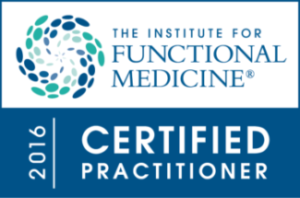Managing blood sugar levels is crucial for overall health, especially for those dealing with insulin resistance, prediabetes, or diabetes. Traditional medical approaches often focus on managing symptoms rather than addressing the root causes of blood sugar imbalances.
As a functional medicine doctor, Dr. Cheryl Winter emphasizes a holistic and personalized approach to achieve optimal health and provide a lasting blood sugar solution.
Understanding Blood Sugar and Its Impact
Blood sugar, or glucose, is the primary source of energy for our cells. The body regulates blood sugar levels through insulin, a hormone produced by the pancreas. Insulin allows glucose to enter cells, where it is used for energy. However, factors such as poor diet, lack of physical activity, stress, and genetic predispositions can lead to insulin resistance. This is where cells become less responsive to insulin, causing elevated blood sugar levels. Over time, this can lead to serious health issues, including type 2 diabetes, cardiovascular disease, and other metabolic disorders.
The Importance of Blood Sugar Solution & Regulation
A solution to promote balanced blood sugar levels is essential for overall health. Chronic elevated blood sugar can cause the following:
- Inflammation: High blood sugar levels can increase inflammation in the body, contributing to various chronic diseases.
- Oxidative Stress: Elevated glucose levels can lead to oxidative stress, damaging cells and tissues.
- Hormonal Imbalance: Blood sugar fluctuations can disrupt hormonal balance, affecting mood, energy levels, and appetite.
- Weight Gain: Insulin resistance and elevated blood sugar often contribute to weight gain and obesity.
Functional Medicine Approach to Blood Sugar Solution
Functional medicine offers a comprehensive approach to managing blood sugar levels by addressing the root causes and promoting overall well-being. Here are key strategies used in functional medicine to achieve a blood sugar solution:
1. Personalized Nutrition Plans
Nutrition plays a fundamental role in blood sugar solution. A personalized nutrition plan is tailored to an individual’s unique needs, taking into account factors such as genetics, lifestyle, and health goals. The following dietary principles can help regulate blood sugar levels:
- Balanced Macronutrients: A diet rich in healthy fats, lean proteins, and complex carbohydrates helps stabilize blood sugar levels. Focus on whole foods such as vegetables, fruits, nuts, seeds, and high-quality proteins.
- Low Glycemic Index Foods: Foods with a low glycemic index are digested slowly, preventing rapid spikes in blood sugar. Incorporate foods such as leafy greens, berries, legumes, and whole grains.
- Fiber-Rich Diet: Fiber helps slow the absorption of sugar and improves insulin sensitivity. Include plenty of vegetables, fruits, whole grains, and legumes in your diet.
- Mindful Eating: Practice mindful eating by paying attention to hunger cues, eating slowly, and savoring each bite. This can help prevent overeating and promote better digestion.
2. Regular Physical Activity
Exercise is a powerful tool for a blood sugar solution, improving insulin sensitivity. Engaging in regular physical activity helps muscles use glucose more effectively, reducing blood sugar levels. Incorporate a variety of exercises, including the following:
- Aerobic Exercise: Activities such as walking, cycling, or swimming improve cardiovascular health and lower blood sugar levels.
- Strength Training: Building muscle mass through strength training exercises enhances insulin sensitivity and glucose uptake.
- Flexibility and Balance: Incorporating activities such as yoga or tai chi can help reduce stress and improve overall well-being.
3. Stress Management
Chronic stress can negatively impact blood sugar solutions by triggering the release of stress hormones such as cortisol, which can increase blood sugar levels. Effective stress management techniques include the following:
- Mindfulness and Meditation: Practicing mindfulness and meditation can help reduce stress and improve emotional well-being.
- Breathing Exercises: Deep breathing exercises activate the parasympathetic nervous system, promoting relaxation and reducing stress.
- Adequate Sleep: Prioritize quality sleep to support hormonal balance and reduce stress levels.
4. Supplements and Herbal Support
Certain supplements and herbs can promote blood sugar solutions by improving insulin sensitivity. It is important to work with a healthcare professional to determine which supplements are appropriate for your specific needs. Some commonly recommended supplements include the following:
- Chromium: Chromium is an essential mineral that enhances insulin action and supports glucose metabolism.
- Magnesium: Magnesium plays a role in glucose metabolism and can improve insulin sensitivity.
- Berberine: Berberine is a plant compound that has been shown to lower blood sugar levels and improve metabolic health.
- Cinnamon: Cinnamon has been found to help lower blood sugar levels by enhancing insulin sensitivity.
5. Comprehensive Testing and Assessment
Functional medicine practitioners utilize advanced diagnostic testing to assess blood sugar levels and identify underlying imbalances. These tests may include the following:
- Fasting Glucose and Insulin Levels: Measuring fasting glucose and insulin levels provides insight into how the body is managing blood sugar.
- Hemoglobin A1c: This test provides an average of blood sugar levels over the past two to three months, offering a more comprehensive view of blood sugar control.
- Lipid Profile: Assessing cholesterol and triglyceride levels helps evaluate cardiovascular risk associated with blood sugar imbalances.
- Inflammatory Markers: Testing for markers of inflammation can identify underlying inflammation that may contribute to blood sugar issues.
6. Addressing Gut Health
The gut plays a crucial role in an effective blood sugar solution. An imbalance in gut bacteria, also known as dysbiosis, can affect metabolism and insulin sensitivity. Functional medicine emphasizes the importance of gut health with the following:
- Probiotics and Prebiotics: Incorporating probiotics and prebiotic-rich foods to support a healthy gut microbiome.
- Digestive Enzymes: Ensuring optimal digestion and nutrient absorption through the use of digestive enzymes, if necessary.
- Elimination Diets: Identifying and eliminating food sensitivities that may contribute to gut inflammation and blood sugar imbalances.
Achieving Long-Term Blood Sugar Balance
Achieving and maintaining balanced blood sugar levels requires a holistic and individualized approach. Functional medicine empowers individuals to take an active role in their health by addressing the root causes of blood sugar imbalances. By focusing on personalized nutrition, regular exercise, stress management, and comprehensive testing, we can achieve lasting blood sugar balance and overall well-being.
The Ultimate Blood Sugar Solutions with Dr. Cheryl Winter
Dr. Cheryl Winter wants you to not just get through life. She wants you to “dance through life.”
If you’re ready to take control of your blood sugar and improve your health, she invites you to schedule a consultation with her practice. Together, we can develop a personalized plan to help you create a blood sugar solution and achieve lasting health and well-being.








